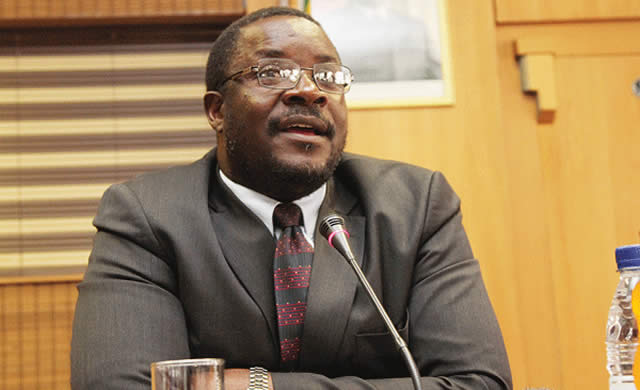EDITORIAL COMMENT: 2018: Year of fixing the economy
The past year saw some serious changes in Zimbabwe. It started in what had become the usual way, continuing indiscipline and modest economic decline with agriculture being the only bright spot and by September panic was creeping into society with the black market exploding and the Zimbabwe Stock Exchange reacting to a widely-held belief that Zimbabwe was about to hit the economic rocks again.
Then came November. Under the shield of the Defence Forces’ Operation Restore Legacy the people took control of their destiny, Zanu-PF repudiated its leader, Parliament started impeachment proceedings that were going to succeed and so President Mugabe resigned.
It is perhaps a good time to reflect that it is only just over six weeks since Zimbabweans of all backgrounds, political and economic, came together to demand change and just over five weeks since President Emmerson Mnangagwa was sworn in as President.
And we have already seen major changes. For a start, the people are not really interested in hearing fancy speeches that have almost zero basis with reality. They want action, they want the worst problems fixed promptly and they want to see Zimbabwe accelerating forward on a road that will lead to respectable rates of economic growth and rising standards of living.
President Mnangagwa can obviously read that mood and in his short, snappy public interventions has made it clear that he wants to be judged on results, and that he sees his Government as a group of practical men and women whose primary purpose is to fix the immediate problems, with all ministries now well into the 100-days he set for the first challenge, and do what they need to do to open and grow the economy for longer term benefits.
Already there has been measurable progress. Command Agriculture, a programme close to the President’s heart when he pushed it forward as Vice President, is accelerating with opposition muted. Getting farming fixed is good in the short-term, medium-term and long-term since doing so cuts imports, boosts exports and raises the standard of living of around half the population.
And it looks as though the moderate indiscipline that crept into the first year will be stamped out. By the end of the current season, with a good block of tens of thousands of farmers able to prove they can be trusted to produce and fulfil contracts once given the chance, we can start moving towards more formalised systems tapping private as well as public money.
Corruption is being hit hard. It is fairly obvious that there is now no protection for the dishonest. A number of cases have started wending their way through the courts and several other people have been quizzed by law enforcement officers. Whatever the results of subsequent trials, the word is getting out that people who can abuse their office had better be able to justify their wealth.
Even the amnesties for foreign exchange cheating and tax evasion are being followed up practically. The Reserve Bank has already contacted a large group of companies and individuals suggesting that they should really take advantage of the break they have been given.
It now appears that the National Budget is being treated as a serious document and blueprint, rather than just a vague wish-list that can be broken at will. The Treasury has already announced it is taking administrative action, even before Parliament has been recalled to debate the larger changes, to tighten spending.
One example of the practical “fix-it” approach of the President and new Government is over prices. President Mnangagwa has made it clear he does not want decrees fixing prices, but instead wants the problems identified and fixed. This was seen with bread prices, where there was obvious collusion, but where an immediate investigation found one small problem, the fact that printed plastic bags were not a priority, that could be fixed almost instantly.
One interesting vote of confidence that change for the good is likely comes from the black market. The premiums are falling. More formally the stock exchange is seeing investors moving from panic mode, seeking to protect assets in a financial collapse, towards thoughtful estimates of how much shares might be worth in a couple of years with decent economic growth and more factories re-opening or moving towards full production.
In many ways Zimbabwe is now rejoining much of Africa where the last two decades have seen good steady growth and leaders seeking election or re-election on the basis of graphs showing rising wealth and rising numbers of jobs.
The overwhelming majority of Africans were born or grew up after independence and while they are grateful to forefathers who won independence they are voting for men and women who can help them achieve a decent future.
President Mnangagwa and his Government will be seeking re-election round about the middle of the year. They have obviously decided that the best way to win the votes is to do the same, showing they can fix things and can deliver. That is not a bad test to apply. It is the same one that the rest of us in our ordinary everyday lives have to pass if we want to keep our jobs, keep our businesses viable or, if we are very young, get up the next rung in the education ladder.










Comments